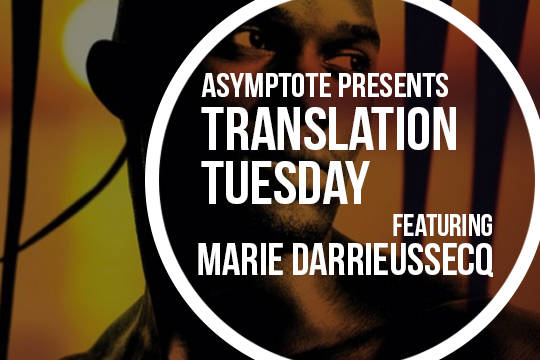The protagonist of Marie Darrieussecq’s latest outing is Solange, a white actress who falls desperately in love with a charismatic black actor in Hollywood. In the excerpt below, which sets the stage for Darrieussecq’s brilliantly droll examination of romance, movie-making and clichés about race relations, Solange’s love interest reveals his plan to direct an adaptation of Joseph Conrad’s Heart of Darkness—in Africa.
He talked to her about the Congo. Not any old Congo, not the little Brazzaville Congo, no, the big Kinshasa one, where very quickly the road runs out and there are just the long arms of the river, which she had looked at on Google Earth three hours earlier. The coincidence was disturbing. She was going to chat about the islands—but he had drawn breath to introduce a new topic of conversation, and was now talking about Heart of Darkness. He told her about Conrad’s novel. The story of a man who is looking for a man. Marlow looking for Kurtz, a retired officer from a colonial regiment, a ‘devil of a rapacious and pitiless folly’. Conrad’s Congo is ‘something great and invincible, like evil or truth’. And Europe—white-faced Europe, the premonition of genocides. He cited the African woman in the novel ‘with a slight jingle and flash of barbarous ornaments’, ‘brass leggings to the knees’ (she pictured the sorceress in Kirikou). He cited the ‘Intended’, ‘this pale visage’, blonde and diaphanous (she pictured herself). Was it a racist novel? No. But it was time for an African to seize power in Hollywood. It was time to take back from America the history of indigenous people.

